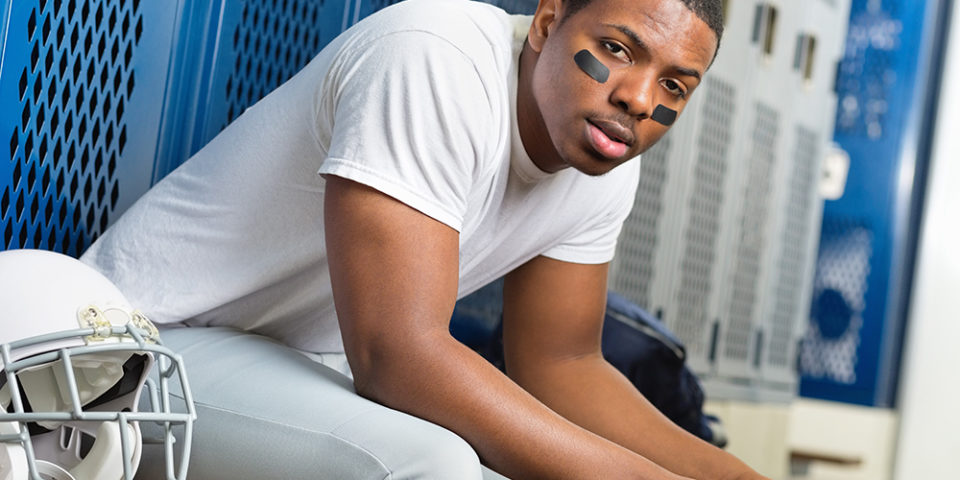Athletes experience depression and anxiety, too
Athletes are like everyone else when it comes to the importance of their mental health. Just because athletes are physically active and healthy doesn’t mean they are immune to mental health concerns. Shea Fontana, DO, explained why.
“Research shows that athletes experience psychiatric disorders, such as depression and anxiety, at the same rate as the general population. The National Institute of Mental Health estimates that roughly 7% of U.S. adults experience a major depressive episode in one year and 18% are affected by an anxiety disorder every year. These numbers have been reproduced at the collegiate level and elite athlete level in recent research, and they have showcased even higher rates based on some studies,” said Dr. Fontana.
What factors can put an athlete more at risk for anxiety and depression?
While exercise, which is part of every athlete’s life, has been shown to promote wellness, there are factors that may play a role in increasing anxiety and depression in athletes. Specific risk factors that may trigger depression in athletes are related to:
- Injury
- Perceived vs. actual failure
- Retirement from sport (planned and unplanned)
- Substance use
- Overtraining syndrome
- Concussion
Anxiety is also common in athletes, particularly prior to performance. At times, anxiety prior to performance can be helpful for some athletes, whereas others may experience a deterioration in performance that may benefit from treatment. For individuals with anxiety disorders, their anxiety will exist in multiple areas of their life – school, work, sport, relationships and more.
What are some signs an athlete is suffering from anxiety or depression?
Common signs and symptoms include:
Depression
- Sad mood
- Changes in sleep and/or appetite
- Decreased interest in activities/sport
- Decreased energy
- Hopelessness
- Increased isolation
- Physical aches and pains not correlated with sport activity
- Suicidal thoughts
Anxiety
Physically
- Racing heart
- Profuse sweating
- Tremors
- Headaches
- Fatigue
- Insomnia
- Nausea
- Gastrointestinal (GI) distress
- Shortness of breath
Emotionally
- Feelings of dread or apprehension
- Feeling tense or on edge
- Repetitiveness leading to distress
- Restlessness
- Irritability
- Fear of the future
- Constant worry
What are treatment options for depression and anxiety?
Treatment can include therapy, prescribed medications or a combination of the two. “It is important for treatment to also be a multifaceted team approach, involving an athlete’s other healthcare providers and discussions about sleep, appetite and exercise,” said Dr. Fontana.
When should an athlete seek help and who should they reach out to?
It’s important for athletes to recognize the signs and symptoms and be open to talking to someone as a first step. This can range from someone involved in their sport, such as an athletic trainer or coach, to a non-sport related friend or family member.
“The most important thing for an athlete to remember is that asking for help does not show weakness. The more we talk about prioritizing mental health, as is done with physique and other abilities pertaining to sport, the sooner the stigma surrounding psychiatric conditions existing in athletes will decrease,” said Dr. Fontana.
If you are struggling with depression or anxiety symptoms, please talk to your doctor.
Find a doctor
Whether you’re looking for a primary care physician or need to see a specialist, we’re here to help with experienced, compassionate care near you.
Find a Doctor

